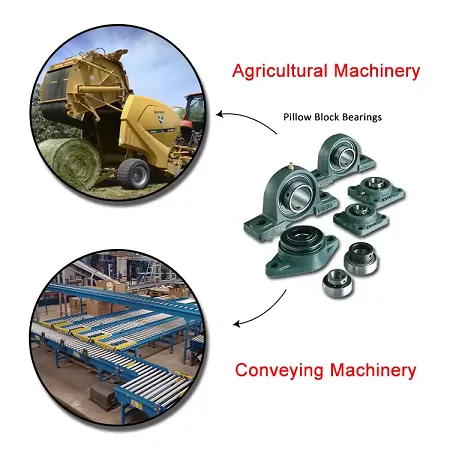Nov . 08, 2024 05:08 Back to list
Custom Materials for Spherical Roller Bearings to Enhance Performance and Durability
Custom Spherical Roller Bearing Materials An Overview
Spherical roller bearings are essential components used in a wide range of industrial applications, providing support and stability to rotating shafts. These bearings are designed to accommodate both radial and axial loads, making them versatile for various machinery. While the design and configuration of spherical roller bearings are crucial for their performance, the material used in their fabrication plays a pivotal role in determining their durability, reliability, and overall functionality. This article explores the various materials used in custom spherical roller bearings, their properties, and the considerations that engineers must take into account when selecting materials for specific applications.
Common Materials for Spherical Roller Bearings
1. Steel Alloys The most widely used material for spherical roller bearings is steel, particularly high-quality steel alloys such as AISI 52100. This alloy is known for its excellent hardness, wear resistance, and fatigue strength. The manufacturing process often involves heat treatment to improve mechanical properties, making it suitable for high-load applications. Bearing elements like inner and outer rings, as well as rolling elements, are typically crafted from these steel alloys.
2. Stainless Steel In environments where corrosion resistance is paramount, stainless steel is the material of choice. Stainless steel bearings, made from materials like AISI 440C or AISI 316, resist oxidation and provide longevity in harsh conditions such as marine or chemical environments. However, while stainless steel offers superior corrosion resistance, it may have lower load-carrying capacity compared to traditional carbon steel bearings.
3. Ceramics Advanced materials like ceramic composites are increasingly being used in custom spherical roller bearings. Ceramics, such as silicon nitride, offer outstanding properties, including low density, high hardness, and excellent wear resistance. Furthermore, ceramic bearings typically have lower thermal expansion coefficients and can perform effectively at elevated temperatures. They are ideal for applications where light weight and high-speed performance are critical. However, the brittleness of ceramics often limits their use to non-shock loading situations.
4. Polymer Materials For specific applications, particularly in industries requiring light-weight components and resistance to chemicals, polymer-based bearings can be advantageous. These bearings can be tailored to provide unique performance characteristics such as anti-friction properties and excellent corrosion resistance. While polymers are generally less capable of supporting heavy loads compared to metal bearings, advancements in polymer technology have led to the development of reinforced materials that can withstand moderate loads and offer flexibility.
Factors Influencing Material Selection
custom spherical roller bearing material

Choosing the right material for custom spherical roller bearings is influenced by numerous factors, including
1. Load and Speed Requirements The operational context—whether it involves heavy loads, high speeds, or both—will dictate the choice of material. For heavy load applications, high-strength steel is often preferred.
2. Environmental Conditions If bearings are to be used in harsh environments, such as those exposed to moisture, chemicals, or extreme temperatures, corrosion-resistant materials like stainless steel or ceramic may be necessary.
3. Cost and Availability The budget for the project and the availability of materials can also influence decisions. While advanced materials like ceramics may provide superior performance, they can be more expensive and harder to source than traditional steel.
4. Maintenance Requirements Some materials require more maintenance than others. For example, while ceramic bearings can run without lubrication, they can be challenging to repair if damaged.
5. Customization Needs Custom spherical roller bearings might require specific dimensions, tolerances, or performance characteristics, which can further dictate material choice.
Conclusion
Custom spherical roller bearing materials are vital for ensuring the optimal performance and longevity of machinery across various industries. By understanding the different materials available—such as steel alloys, stainless steel, ceramics, and polymers—engineers can make informed decisions that align with performance, environmental, and economic requirements. As technology advances, the continuous exploration of new materials promises to enhance the capabilities of spherical roller bearings, paving the way for innovation in machinery design and operation. The careful selection of bearing materials will undoubtedly play a crucial role in meeting the demands of increasingly complex engineering applications in the future.
Latest news
-
25MM 2 BOLT UCFLX05-14 Flange bearing unit( oval)
NewsMar.07,2025
-
4 bolt UCF 200 series Pillow block bearings
NewsMar.07,2025
-
25MM 2 BOLT UCFLX05-14 Flange bearing unit( oval)
NewsMar.07,2025
-
UCF216-50 4-Bolt Flange Housing Square Bearing
NewsMar.07,2025
-
25MM 2 BOLT UCFLX05-14 Flange bearing unit( oval)
NewsMar.07,2025
-
spherical roller bearing material exporter
NewsMar.07,2025





